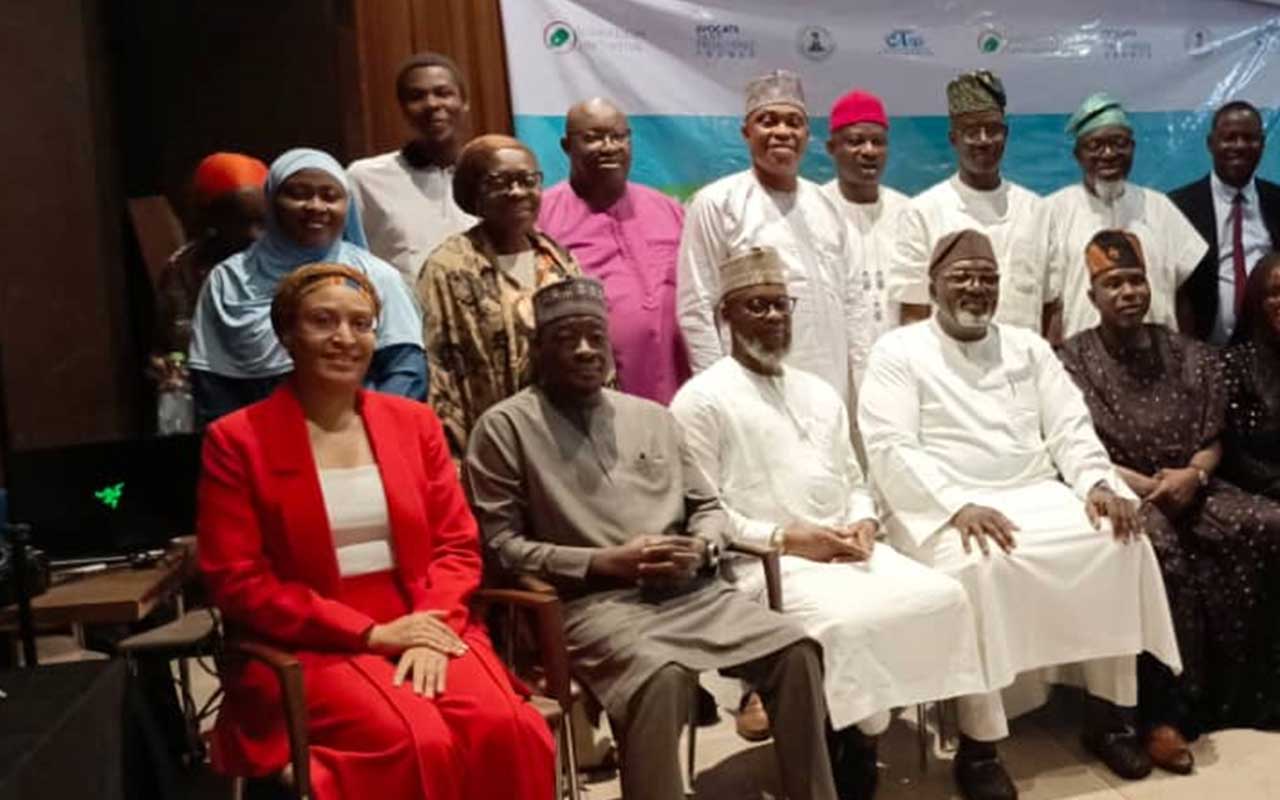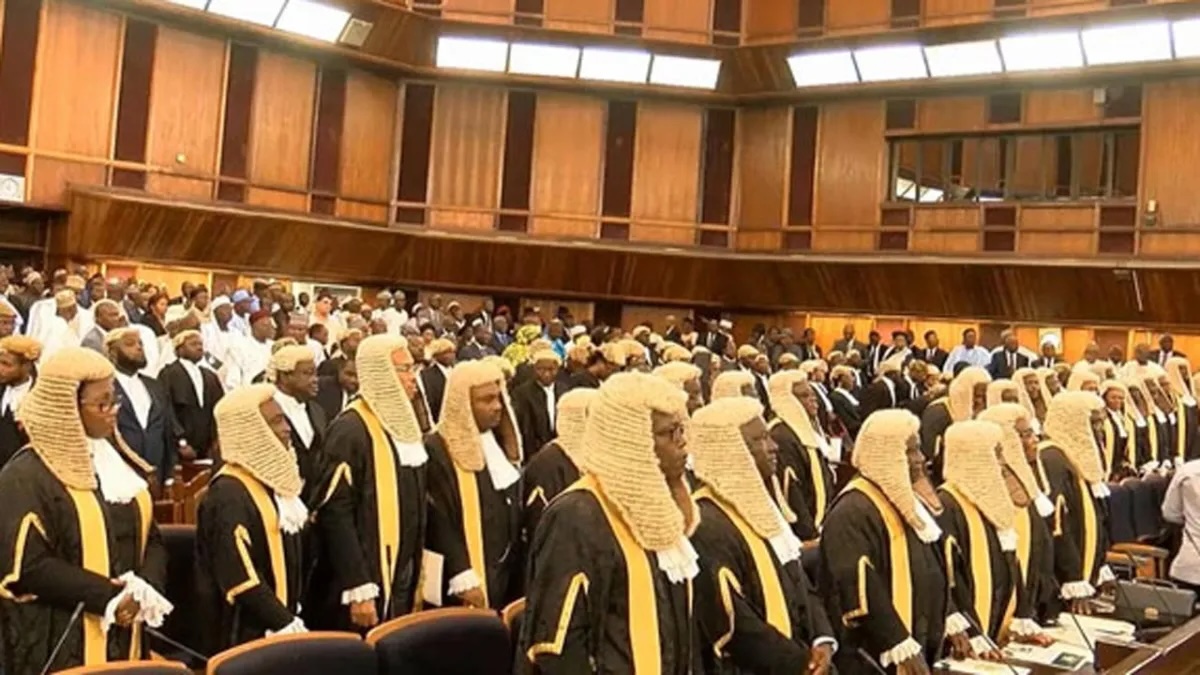The Minister of Justice and Attorney General of the Federation, Lateef Fagbemi, SAN, said that the ongoing justice sector reform is focusing on twofold objectives, which include citizens’ access to justice and the efficiency of the justice system.
The Minister of Justice made this known on Friday at the Conference of the Network of Justice Sector Reform Teams held in Lafia, the state capital.
Fagbemi disclosed that the Network of Justice Sector Reform Teams was established by the Justice Ministry in the Tinubu administration’s quest for a more collaborative, efficient, and effective implementation of justice norms and prioritisation of the rule of law in the country.
“The Teams are designed as the ‘think tanks’ and the ‘engine rooms’ of reform at the sub-national level, and your collaborative efforts remain indispensable to enhancing the administration of justice.
“The theme chosen for this engagement—’Interoperability between Access to Justice and the Ease of Doing Business’—is both timely and critical.”
Fagbemi noted that the theme undoubtedly sits at the very core of President Bola Ahmed Tinubu’s “Renewed Hope” agenda, which is anchored on attracting investment, creating jobs, and fostering sustainable economic growth.
He also emphasised that there can be no meaningful economic progress without a robust, predictable, and efficient justice system.
“The ‘Ease of Doing Business’ is not merely a matter of enhancing bureaucratic efficiency; it is fundamentally a critical factor in service delivery and justice administration.
“It includes institutional assurances which we give to a small business owner in Lafia, a tech entrepreneur in Lagos, and an international investor in London, that their rights will be protected, their contracts will be enforced, and their disputes will be resolved fairly and expeditiously.”
The Minister of Justice said that for too long the country’s justice system has been perceived as a labyrinth—slow, complex, and inaccessible to the average citizen and business.
“For a commercial dispute to be resolved efficiently, the entire justice ecosystem must work in harmony. This includes pre-action collaboration involving the promotion of robust Alternative Dispute Resolution (ADR) mechanisms to ensure that not every dispute ends up in our already overburdened courts.”
Concluding, Fagbemi said, “We must ensure that justice is not a luxury reserved for the wealthy or the connected. It must be a public good, available to all, including the poor, the vulnerable, and small and medium-sized enterprises (SMEs), who are the lifeblood of our economy.
“We must ensure that justice is not only done but is seen to be done in good time. ‘Justice delayed is justice denied’ is not just a legal maxim; it is a profound economic truth.”
In his opening remarks, Governor Abdullahi Sule commended the Justice Ministry for choosing Nasarawa as the host state of the Justice Sector Reform conference.
According to Sule, “‘Interoperability between Access to Justice and the Ease of Doing Business’ resonates powerfully with our own governance philosophy in Nasarawa State.”
The governor disclosed that his primary mandate is to create a safe, secure, and prosperous environment for citizens.
“We are aggressively seeking private sector investment to harness our vast mineral and agricultural potential, create jobs, and build sustainable infrastructure.
“However, we know that investors are not just looking for resources; they are looking for certainty. They are looking for a jurisdiction where the rule of law is not a mere slogan, but a lived reality. They want to know that commercial agreements will be respected, that regulatory frameworks are stable, and that in the event of a dispute, they will have access to a fair, impartial, and efficient justice system.
“This is where your work becomes the bedrock of our economic agenda. The ‘Ease of Doing Business’ is directly proportional to the ‘Access to Justice.’
“A slow, analogue, and unpredictable justice system is as great a barrier to investment as a bad road or an unstable power supply.
“The ‘interoperability’ you are discussing today—the seamless collaboration between our courts, ministries of justice, law enforcement, and other institutions—is not just an administrative goal. It is an economic imperative.
“It is a critical component of President Bola Ahmed Tinubu’s ‘Renewed Hope’ agenda, which we are fully committed to domesticating here in Nasarawa.”
Sule explained that his administration is proud of the steps being taken to support justice reform. He said that he supports the judiciary to enhance its capacity and autonomy.
Sule further assured that he is keen on leveraging technology to improve service delivery across the board, noting that he is ready to learn from the expertise gathered to partner in implementing practical solutions.
“Let us move from diagnostics to implementation. How can we leverage technology to fast-track commercial disputes? How can we strengthen Alternative Dispute Resolution (ADR) to decongest our courts? What best practices can we share across states to ensure that a business in Nasarawa enjoys the same level of judicial certainty as one in Lagos or Kano?”






